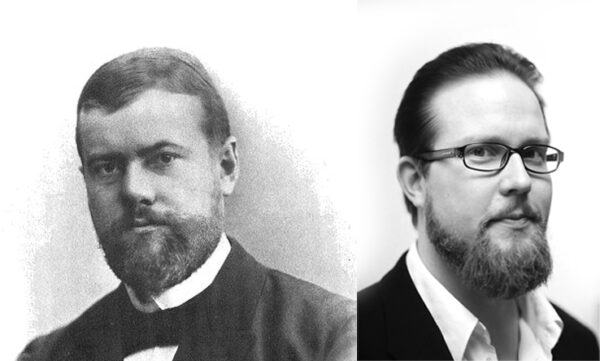I live in Westmont, New Jersey, a small town in South Jersey just outside of Camden and not far from Philadelphia, Pennsylvania. Westmont and its neighbouring town of Collingswood boast an urban lifestyle without the expense of Philadelphia; and the main thoroughfare of Haddon Avenue that runs through both of these towns has shops, cafes and restaurants. What surprised me most when I moved to Westmont this year was the existence of two different co-working spaces within a mile of my home. Co-working spaces allow freelancers and independent contractors to work side-by-side, sometimes collaborating and sometimes not. One such space near my home, The Factory, also doubles as a maker space, hosting classes on everything from band saws to sewing. The other is a café that provides an hourly rate for those who want or need the conveniences of an office (copier, fax machine, for example) at an affordable cost.
Just a few years ago co-working spaces were a novelty but now they have woven themselves into the fabric of urban (and perhaps even suburban) life. While the existence of these two proximate spaces (they are a mere two blocks apart) would be unremarkable in a city the size of Philadelphia, it was somewhat more surprising to see both of these spaces in the Collingswood/Westmont area. The infrastructural shifts in urban environments have moved quickly. As of last year there were more than 2,500 such spaces worldwide and one recent study suggests that as many as four co-working spaces emerge daily.1 With this growth comes a host of questions: How does co-working force us to reconsider how we build and live in cities? What new economic arrangements accompany this shift? What freedoms and constraints are offered when the stability of office life is traded in for the fluidity of co-working, freelancing, and independence? What is lost and gained?
A larger question also emerges, one that allows us to reflect on broad cultural shifts: What kind of work ethic is revealed in the move to co-working? By work ethic, the meaning is not one’s individual drive or motivation to work. Instead, Max Weber’s famous essay comes to mind, The Protestant Ethic and the Spirit of Capitalism, in which he examines the links between Calvinism and a set of cultural assumptions about labour and leisure.2 In this 1903 text, Weber traces what he calls ‘worldly asceticism’ over a long historical period, tracking its roots to the Protestant Reformation in the Sixteenth Century and even arguing that its earliest roots can be seen in the Middle Ages. The Protestant ethic grounds the desire to follow one’s ‘calling’ and accumulate wealth, but while Weber’s arguments follow a long arc of history, some argue that we are in the midst of another shift in work ethic, one that has emerged recently and quickly. If Weber’s Protestant ethic was driven by the duty to pursue one’s calling, this new ethic, which Pekka Himanen calls the ‘hacker ethic,’ is defined by a pursuit of passions and social ties. Himanen, who has studied both philosophy and computer science and has conducted research at universities around the world, offers an optimistic view of contemporary labour arrangements, a view that we will examine in more detail below.
For now it is worth noting that Weber’s discussion is much less optimistic than Himanen’s. In fact, the most famous metaphor to emerge from Weber’s study is his ‘iron cage’, a term he uses to describe the system of rationalized labour that began to dominate amidst the rise of capitalism. While the Calvinist might have chosen this cage, Weber argues, we did not:
The Puritan wanted to work in a calling; we are forced to do so. For when asceticism was carried out of monastic cells into everyday life, and began to dominate worldly morality, it did its part in building the tremendous cosmos of the modern economic order.3
One question we might ask is whether Himanen’s new work ethic – one that finds expression in many places, including the move to co-working – escapes that iron cage. But rather than celebrating or condemning any work ethic, we might be best served to turn our attention to diagnosing these shifts. What is happening in the rearrangement of the urban workspace that simultaneously reflects and shapes the contemporary spirit of late capitalism? How did we get here?
The Spirit of (Late) Capitalism
What Weber is after when tracking the ‘spirit of capitalism’ is a historically specific way of understanding the accumulation of wealth for its own sake. Critics of Weber argue that what he sees as a specific historical phenomenon is actually not at all new. These critiques aside we should note that Weber’s study was an attempt to examine how Calvinism’s notions of predetermination and one’s ‘calling’ in the world prepared the way for modern capitalism. In this worldview God has determined who the chosen are and this determination happens outside the purview of humans. One cannot know whether or not they are chosen and as Weber notes, ‘the elect thus are and remain God’s invisible Church’.4 Given that I cannot know whether or not I am chosen, I must proceed as if I am chosen (a lack of confidence is a lack of faith) and the best way of attaining such confidence is by way of ‘intense worldly activity’.5 This means following one’s calling: ‘The only way of living acceptably to God was not to surpass worldly morality in monastic asceticism, but solely through the fulfillment of the obligations imposed upon the individual by his position in the world. That was his calling.’6 As Weber explains it, this pursuit is a way of fighting off the anxiety of not knowing if one is chosen, and it is a way of being that came to define the spirit of modern capitalism.

One can see how this pursuit of a calling persists even today. However, Weber’s specific claims about the link between Protestantism and capitalism do not necessarily still hold true (no doubt, some do and some do not). Rather, we should take into account and understand Weber’s broader method of analysis. The ethic of capitalism at any given moment – its ethos, its character, its general contours – is pressed upon, shaped and molded by a variety of cultural factors, including but not limited to religion.
The term, ethos, is especially fortuitous, given that it provides us with a way of thinking about not only character but also about design and architecture. While most uses of the term ethos refer to the dependability or disposition of a person, the term can also mean ‘dwelling place’.
Michael Hyde describes how Pre-Socratic philosophers understood ethos in terms of:
the way discourse is used to transform space and time into ‘dwelling places’ (ethos; pl. ethea) where people can deliberate about and ‘know together’ (con-scientia) some matter of interest. Such dwelling places define the grounds, the abodes or habitats, where a person’s ethics and moral character take form and develop.7
While Weber did not explicitly reference this meaning of ethos, it reflects his own approach: ‘The capitalistic economy of the present day is an immense cosmos into which the individual is born, and which presents itself to him, at least as an individual, as an unalterable order of things in which he must live.’8 As already noted, Weber referred to this cosmos (which we might also call an ethos) as an ‘iron cage’.
Himanen offers a new take on Weber’s ethic, arguing that the late Twentieth and early Twenty-first Century are defined by a new kind of work ethic – the hacker ethic. One need not necessarily program a computer to fit Himanen’s category of hacker. The hacker ethic is defined by a passion for one’s work – an intense enjoyment and a desire for exploration. Hackers are interested in figuring out how things work and even activities that seem to be focused on what we’d normally term ‘theft’ are typically more about tinkering than financial gain. An example can help to make this clear. When John Draper learned that a small blue toy whistle in boxes of Cap’n Crunch cereal produced a tone that allowed access to long distance phone networks, he constructed the now famous ‘blue boxes’ that allowed hackers (or ‘phone phreaks’ as they were then known) access to telephone networks.9 But Draper was insistent that he was less interested in free long distance phone calls than he was in learning how the phone network worked:
I’m learning about a system. The phone company is a System. A computer is a System. Do you understand? If I do what I do, it is only to explore a System. Computers. Systems. That’s my bag. The phone company is nothing but a computer.10

This desire for exploration is what Himanen has in mind when he describes the hacker ethic, one that he argues is as far reaching as Weber’s Protestant ethic:
Computer hackers can be understood as an excellent example of a more general work ethic – which we can give the name the hacker work ethic – gaining ground in our network society, in which the role of information professional is expanding. But although we can use a label coined by computer hackers to express this attitude, it is important to note that we could talk about it even without reference to computer people. We are discussing a general social challenge that calls into question the Protestant work ethic that has long governed our lives and still maintains a powerful hold on us.11
This emerging ethic is defined by three primary components: work ethic, money ethic, and ‘nethic’. The hacker work ethic, as we have already begun to see, blends labour with leisure focusing on passion rather than duty. This work ethic fights against ‘the optimized life’, one in which work is separated from any sense of play or enjoyment and in which leisure is strictly divided from work. The hacker is more interested in ‘flextime’ than in the strict management of a nine-to-five workday. The other two components of the hacker ethic – the money ethic and the ‘nethic’ – are closely related. Himanen argues that the hacker is motivated not primarily by money but by ‘the experience of being part of a “We” with some others’.12 According to Himanen, the hacker finds the idea of ‘working for a living’ strange. When it comes to Himanen’s ‘hackers’, we are no doubt dealing with a quite privileged class of people, but it is not entirely clear whether he recognizes this. Still, his larger argument and its relationship to Weber’s is our focus here. Where the Protestant ethic is dominated by finding a calling and pursuing work as duty, the hacker ethic is focused on passion, community and belonging.
Work/place
Even to the most generous reader, Himanen’s account sounds a bit too rosy and he is not alone in this optimistic view of our contemporary economic arrangement. But some of those who are optimistic about this shift are at least aware that co-working is tightly yoked to less positive economic trends. In The Fifth Age of Work, Andrew Jones points out that the co-working movement has been pushed along by massive layoffs and downsizing. Jones describes the shift to co-working spaces in terms of a new workforce that aims to avoid the pitfalls of a previous generation. In this ‘free agent nation’ (Jones draws this terminology from Daniel Pink’s Free Agent Nation: The Future of Working for Yourself) workers want to start their own businesses on their own terms:
The desire to start a business or work independently among a growing segment of the population should come as no surprise. According to experts, it is a reaction to witnessing how corporate downsizing, outsourcing, and layoffs have affected baby boomers – risks and constraints younger generations don’t want.13
These are the kinds of people filling co-working spaces and attempting to escape traditional workplaces. Still, while the blending of labour and leisure might be seen as a way to seek out fruitful work experiences and to avoid the stifling environment of a traditional workplace, it might just as easily be seen as a way of further wringing out a workforce that has already been depleted by layoffs and downsizing. This is largely what has driven the move to co-working.
While many might prefer the ‘free agent’ lifestyle, its emergence might have less to do with preference or choice and much more to do with the ethos of late capitalism. To update Weber’s statement: ‘The hacker wanted more flexibility in work environment; we are forced to do so.’ There is no doubt that many prefer co-working and the life of a freelancer, but it would be a mistake to chalk up this rearrangement of the workplace to personal choice or freedom. Our new workplace dwellings might feel less cage-like and it seems obvious that they are preferable to drab cubicles (which are, quite literally, cages).
But what are the implications of the spirit of late capitalism if it blends work and play, labour and leisure, especially given that this blending happens not only in terms of time but also in terms of space?
The coworker’s professional life is distributed across various places (home, co-working space, the occasional office, depending on the project they are working on) and times (smartphones and other portable devices are also part of this ethos). How does this new architecture of professional and personal life reconfigure time and space?

It is worth returning to Weber here, since he would no doubt see the move to co-working not as an escape from the Protestant ethic but rather an intensification of it. Weber did not predict co-working, but he did wonder about the future of his iron cage:
No one knows who will live in this cage in the future, or whether at the end of this tremendous development entirely new prophets will arise, or there will be a great rebirth of old ideas and ideals, or, if neither, mechanized petrification, embellished with a sort of convulsive self-importance. For of the last stage of this cultural development, it might well be truly said: ‘Specialists without spirit, sensualists without heart; this nullity imagines that it has attained a level of civilization never before achieved.’14
Perhaps the new prophets are hackers, or perhaps not. If we accept Himanen’s portrayal: the spirit of late capitalism is not without spirit or heart, but if that spirit and heart, that sense of belonging to a ‘We’ begins to envelop all, it seems that our contemporary dwellings are just a new manifestation of Weber’s cage.
- Andrew Jones, The Fifth Age of Work: How Companies Can Redesign Work to Become More Innovative in a Cloud Economy, (Portland, OR: Night Owls Press, 2013), p. 22. ↩
- Max Weber, The Protestant Ethic and the Spirit of Capitalism, 2nd edn. (London: Routledge, 2001) ↩
- p. 123. ↩
- p. 66. ↩
- p. 67. ↩
- p. 40. ↩
- Michael Hyde, ed., The Ethos of Rhetoric, (Columbia, SC: University of South Carolina Press, 2004), p. xii. ↩
- Weber, The Protestant Ethic, op. cit. (note 2). p. 19. ↩
- John Draper, online interview, the workings of the Little Blue Box. <youtube> <webcrunchers> ↩
- Ron Rosenbaum, (2011) Secrets of the Little Blue Box. Online. (accessed 16 December 2014). ↩
- Pekka Himanen, The Hacker Ethic and the Spirit of the Information Age, (New York: Random House, 2001), p. 6. ↩
- p. 48. ↩
- Jones, The Fifth Age of Work, op. cit. (note 1). p. 24. ↩
- Weber, The Protestant Ethic and the Spirit of Capitalism, op. cit. (note 2). p. 124. ↩
